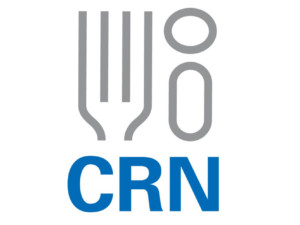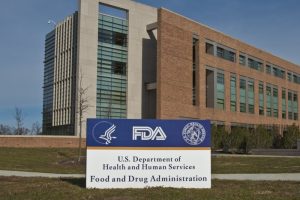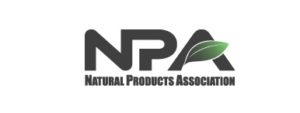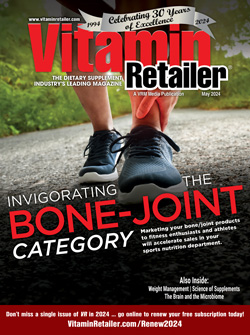Panelists:
Jim Emme, CEO, NOW Health Group, Bloomingdale, IL, www.nowfoods.com
Jonathan Emord, President, Emord & Associates, Clifton, VA, https://emord.com
Karen Howard, CEO and Executive Director, Organic and Natural Health Association (ONHA), Washington, D.C., www.organicandnatural.org
Mark LeDoux, CEO and Chairman, Natural Alternatives International (NAI), Carlsbad, CA, www.nai-online.com
Dan Lifton, CEO, Quality of Life Labs, Purchase, NY, https://qualityoflife.net
Michael McGuffin, President, American Herbal Products, Association (AHPA), Silver Spring, MD, www.ahpa.org
Cheryl Myers, Chief of Scientific Affairs and Education, EuroPharma, Inc., Green Bay, WI, www.europharmausa.com
Steve Mister, President and CEO, Council for Responsible Nutrition (CRN), Washington, D.C., www.crnusa.org
Marge Roman, Manager, Stay Healthy!, Las Vegas, NV, www.stayhealthylasvegas.com
Elan Sudberg, CEO, Alkemist Labs, Garden Grove, CA, www.alkemist.com
The current confusion about NAC as a case in point, it appears, some say, that the FDA (U.S. Food and Drug Administration) is now going on fishing expeditions looking for ingredients that have been safely used for decades and then retroactively removing their status as dietary supplements based on some old drug approval forms that were gathering dust.
The industry may well wonder what’s going on here with drug preclusion of long-standing dietary supplements. We may wonder why the FDA is increasingly doing this and how the industry should view this.
From corporate acquisitions, to even more anti-supplement state bills than we’ve perhaps seen in recent memory, is the natural products industry at some sort of inflection point?
Our panel of experts weighs in.
VR: To be filed under the “ridiculous things they’re saying about supplements now,” an op-ed recently ran on Bloomberg News, and in the Chicago Tribune and other outlets, warning about how “essentially useless” and dangerous dietary supplements allegedly are. Comment?
Lifton: Consumers are so much more well-informed about supplements than are the media and than the media give them credit for, so I don’t believe that most people fall for this nonsense anymore. There are only so many times that the media can cry wolf.
Sudberg: As a perpetual student of logic, I find that statement a quick match for a common logical fallacy called “Hasty Generalization.” To the allegation of “essentially useless,” they are called supplements because they are intended to supplement a healthy diet. They are not intended to replace food. I only know a handful of people who actually eat a healthy enough diet, while the rest of the population doesn’t try very hard to follow the constantly changing food pyramid. For what is missing, for the rest of us, dietary supplements are available to nudge up your nutrient intake to close the gaps. To the careless accusation that dietary supplements are dangerous, I’d like to remind the readers that more humans die from taking FDA (U.S. Food and Drug Administration)-approved pharmaceutical drugs, each day, than in my 25 years serving the dietary supplement industry. [Estimates are] 60,000 humans had to die before they pulled Vioxx. I mean, come on.
Mister: Quite simply, this opinion piece performs a disservice to consumers who want to be more informed about making smart supplement purchasing decisions. The article starts with the ridiculous comparison of dietary supplements—products with wide margins of safety and prohibited from claiming to prevent or treat disease—with a vaccine intended to mitigate a deadly pandemic. Further, the article falsely suggests that most supplements are harmful and others are essentially useless, even putting into question products that contain essential vitamins and minerals. This uninformed information disregards decades of scientific research and government data that illustrate how Americans are deficient in several key nutrients and can benefit by filling nutrient gaps with dietary supplements.
Emme: Supplements are not the solutions to everything, and there are certainly no “magic bullet” products on the market. We believe that good nutritional habits, regular exercise and the use of supplements as needed are keys to a healthier lifestyle. Unfortunately, some brands overstep legal boundaries and make unsubstantiated claims or mislabel products. These companies are violating the rules outlined in DSHEA (Dietary Supplement Health and Education Act of 1994) and should be held accountable for these illegal behaviors. One way to check on the safety of supplements is to compare the adverse event reports for supplement products to those of prescription drugs. It’s a telling way to see how safe supplements are when properly used by consumers.
Emord: The much ballyhooed statement “follow the science” applies to this question. It is indeed absurd to contend in an all-encompassing swath that dietary supplements are useless and dangerous. Over the last 60 years, the scientific literature has established that a wide array of nutrients have a major effect on reducing the risk of disease and even treating specific diseases. Only a luddite contends that 800 micrograms of folic acid will not reduce the risk of neural tube defects, that omega-3 fatty acids do not reduce the risk of coronary heart disease and sudden death heart attack, that chromium does not help regulate blood sugar levels, that niacin does not lower blood pressure, or that selenium does not lessen the risk of certain kinds of cancer. While we may generally put the FDA in that category of backward thinkers, the courts have frequently called the agency to task for favoring suppression over disclosure of the scientific evidence.
LeDoux: Having been a part of this industry for most of my adult life, and having seen the vitamin wars up front and personal in the Halls of Congress or within the medical complex, this latest assault falls under the category of “benign ignorance.” The data supporting the appropriate use of dietary supplements is overwhelmingly positive.
VR: Why is the FDA increasingly “cancelling” long-standing safe dietary supplements, such as NAC? Why is the FDA doing this and how can this be stopped, as we can assume this was never the intent of DSHEA? Comments?
Mister: CRN agrees that the issue of NAC is very troubling for industry and consumers. We remain concerned about the position taken by FDA in July 2020 warning letters that the FDCA (Federal Food, Drug and Cosmetic Act) prohibits companies from marketing products containing NAC as dietary supplements because the ingredient was first approved as a drug. CRN believes that position is legally invalid— DSHEA was never intended to remove products from the market that were already there. CRN is concerned that pharmaceutical companies are using this to clear the decks of widely used dietary supplements, so they can market more expensive prescription drugs for a narrow purpose.”
Emme: It’s not clear why the agency is approaching NAC in the manner it is today. DSHEA specifically states that any product shown to be sold prior to the implementation of DSHEA in October of 1994 would be considered an old dietary ingredient (ODI). NAC has been sold for nearly 30 years, so it seems to certainly meet this criteria. A review of the AER and SAER records would show if there are any serious safety issues since the implementation of the adverse event reporting requirements. There have been none referred to by the agency, so safety doesn’t seem to be the issue. If a product that has been sold to, and safely used by, consumers for nearly 30 years, and it’s only recently being challenged, it doesn’t make sense.
Howard: What is the worst thing that can happen to a dietary supplement? The research regarding efficacy in the treatment of disease is so convincing that it requires the product be turned into a prescription drug. Could vitamin D3 fall into this path? We suffer from the folly that (reimbursable) treatment outweighs the benefit of prevention, for which no savings can be attributed. An example of how semantics dictates public policy to the detriment of health outcomes. Herein lies the challenge—redefining the system to support health and wellness on par with the treatment of disease.
Lifton: Over the last three decades, the many benefits of NAC have been well established, including antioxidant protection, detoxification support and immune support. We are cautiously optimistic that the clear light of reason will shine through the shifting fog of FDA’s priorities, and we support our trade association’s efforts on this.
VR: Monster corporations are gobbling up supplement brands left and right. Do or should these “strange bedfellows” make the natural products industry and retailers uncomfortable, identity-wise, in any way?
Myers: While on the one hand, one could see the ongoing acquisition of natural products companies by major corporations as further validation that this is a vital and growing area of health, it unfortunately comes with a loss of the innovation, creativity, dedication and sophistication one often sees in the independent natural product company. My fear is that many large, acquisitory companies who enter this field are not interested in the kind of life-changing products that take a great deal of research and education, or that do not turn a fast profit.
Lifton: If, and only if, these brands are allowed to maintain their brand values and quality standards, and not be compromised by the vagaries and vicissitudes of corporate shareholders’ whims, then this could be good for these brands, their products and for consumers. Sudberg: I think there is an argument leaning on superficial optics of such goliath brands financially sliding into our wholesome industry. That said, in my experience working with many of the companies in the above list, such transactions have only improved the products the hippie founders dreamt up long ago.
McGuffin: It is typical of any industry as it matures to see some consolidation. In AHPA’s experience to date, that phenomenon in our industry has not led to any reduction in commitment to quality by any of the acquired companies. In addition, in some cases the new owners have taken more active roles in cooperative industry efforts, such as trade association engagement.
Mister: As consumer interest—and sales—have risen, it’s no surprise that supplement companies have become particularly attractive for investment by consumer product companies and private equity. Over the last five years, private equity firms have purchased a wide range of supplement brands and helped them to grow. Given the influx of new players in the industry, it’s clear how trade associations can help these outsiders get the lay of the land and increase their company’s value.
Emord: Retailers benefit from competition because it helps keep prices low and ensure the widest possible selection for customers. Competition tends to improve quality and invite innovation. Consequently, when large players buy up the smaller ones concerns arise as to whether oligopolies will secure control over market sectors, affecting price, variety, and quality in negative ways. The economic history of the United States does not support that thesis in the absence of anti-competitive government regulation. As a result, we have far more to fear from the monopoly of the state than we do occasional concentrations in the market. The upside of concentrations is the application of more capital to production, at least in the initial stages, which tends to improve standardization and supply.
Roman: I think there is some concern that the big mass-market corporations will have a negative impact on retail sales. Many of my customers feel that these companies will begin to sacrifice quality of raw materials in an effort to increase profits. As an industry old-timer, I miss the main street vibe that many of these companies used to have.
VR: AB-1341 is a bill in California that would ban retailers in this state from selling dietary supplements for weight loss and over-the-counter diet pills to minors. Aside from the arguably misguided bill itself, there are many ways that the state could incorrectly overapply the “dietary supplements for weight loss” classification to many non-weight-loss supplements. Thoughts?
Mister: On May 20, the California State Assembly designated AB 1341 as a “two year bill.” CRN’s understanding is that the legislation will not advance during this calendar year, but it certainly does not mean it is dead. Industry must remain vigilant of this bill and of similar legislation that would restrict consumer access to dietary supplements that support weight management. Because of the bill’s broad definition of “dietary supplements for weight loss,” we’re concerned that this legislation could potentially also apply not only to ingredients like caffeine and green tea, but also to ones outside the traditional purview of “weight management,” such as protein, fiber, and some probiotics, among others. CRN will continue its constructive and respectful dialogue with the bill sponsor on developing a final proposal for Assembly and Senate consideration.
Emord: Blanket bans (prior restraints) are the bane of free markets, paternalistically denying consumers freedom of informed choice and producers the opportunity to innovate. That is true in this instance. To ban this category for children when the nation is suffering from an epidemic in childhood obesity is certainly the wrong answer. Instead of imposing blanket bans and paternalistically denying consumers the freedom to choose what products they wish to use, governments would do well to break down barriers to the dissemination of truthful scientific information at the point of sale. If consumers are well enough informed, they will choose the products that they perceive to be best for them and their families. The government has no legitimate role in depriving consumers of that choice unless upon proof that the products in question cause harm when used as directed.
McGuffin: AHPA has been working to address the problems of AB 1341 since its introduction and we were pleased to see it fall off the fast track. AHPA has been engaged in discussions with industry, the bill’s authors and members of the California legislature to push against any state-by-state rollback of consumers’ rights to access. AHPA will continue to ensure that AB 1341, and the similar bills in Massachusetts and New York, take the needs of consumers into account.
Emme: We support the ability of consumers to make their own choices of natural products. Responsible retailers will likely not be selling products that fail to meet the safety standards of DSHEA. If there is no known or reported safety risk for a product, then why restrict the sales of these products to any consumer? It doesn’t make sense to us.
Myers: We don’t ask a chef to build our house, or a musician to do an appendectomy. And yet we find ourselves in a situation where legislators without much exposure to nor understanding of the natural products industry try to legislate its activities. A good answer is to become politically active; reach out on a local level to legislators, write letters (I have heard that politicians take them more seriously than emails) and consider running for office, whether at local, state or federal level. It is more effective to build bridges than to fortify trenches.
VR: New legislation proposed by Sen. Kevin Cramer (R-ND) would expand coverage of supplements into the Supplemental Nutrition Assistance Program (SNAP) and the Special Supplemental Nutrition Program for Women, Infants and Children (WIC). Brief comments?
Howard: I know for a fact you can buy REI hiking boots and a Lululemon yoga mat with HSA dollars, but not dietary supplements—unless recommended by a health practitioner for specific health needs. Nor could you buy feminine hygiene products until the 2020 passage of the CARES Act! We are dealing with arcane certitudes. Inclusion of dietary supplements in SNAP and WIC is the worthy battle. After all, supplements are a highly regulated food, second only to baby formula. There is data to support health outcomes for consuming our bottles of food, particularly for vitamin D. That said, after 20 years, it is abundantly clear that we can’t change funding or coverage of this outdated and essential program on our own. This is an issue that suffers from a lack of corporate campaign power. The problem is, we’ve not made enough friends in this stakeholder community.
Roman: Allowing the freedom to use your HSA on supplements makes me think of acceptance. It helps to convince consumers that the use of dietary supplements is an acceptable preventive measure for better health and an alternative to over-the-counter remedies.
Sudberg: When a bag of organic apples costs more than dinner for four at a fast-food restaurant you know we have a problem. It’s not those of us with the means to feed our families correctly that need supplements, it’s those who struggle with basic needs and the last thing they are thinking about is buying supplements. These programs make them available to those who need them most.
Lifton: While we fully support bills such as these, the will of the American people in favor of these bills must first also become the will of a large number of legislators on Capitol Hill, or else these bills will continue to fall by the Congressional wayside year after year.
VR: Aside from Senator Cramer’s bill, what is the one most important proposed legislative fix or bill regarding dietary supplements on Capitol Hill right now, and why?
Mister: For the benefit of consumers, retailers and industry, we are advocating for solutions to address CBD in dietary supplements and to enact a Mandatory Product Listing (MPL). CRN is a strong advocate for HR 841, the Hemp and Hemp-Derived CBD Consumer Protection and Market Stabilization Act of 2021. Once enacted, the bi-partisan legislation will direct FDA to provide a legal pathway to market for dietary supplements containing CBD and other hemp-derived cannabinoid dietary supplements. We are also actively advocating for MPL, as it would help FDA to easily identify and monitor problematic products, promote good manufacturing practices (GMPs), and prioritize its resources.
Howard: Perhaps we can “fix” the hemp/CBD issues for a market whose financial future feels stagnant; the result of a lack of regulation. As for improving health status, we need to be challenging legislators on both sides of the aisle to improve the health of disadvantaged populations. This is not work that can be accomplished by one member of Congress or one industry trade association. Perhaps therein lies our true challenge.
VR: Are there fewer adulterated and contaminated dietary supplements today than there were before? If so, why, and if not, why? What specific self-regulatory program(s) can be brought to bear?
Sudberg: We’ve experienced combating adulteration as a moving target since we founded Alkemist Labs. Depending on what is in demand, adulterants will change and ways of cheating evolve. Right now the immunity products are under attack and we all need
to be diligent in confirming quality.
Rigorous testing by a highly competent lab is the best way to identify adulterants. Because the FDA’s final DSHEA implementation rule was so vague about testing, companies doing things right should be transparent in demonstrating their quality steps, including test results. And industry self-policing by keeping each other informed about what we’re seeing and calling out problems is valuable too.
Emme: Unfortunately there continue to be many mislabeled or adulterated products on the market today, especially on many online marketplaces. We have identified many of these products ourselves, and have publicly reported them. Some e-commerce retailers are making efforts to clean up the bad products on their sites, but there are many more that need to step up their efforts and do a better job for consumers.
Howard: The data shows that dietary supplements are widely used, and are likely the safest consumable product category on the market today. While improvements are always available, perfection is not.
McGuffin: Dietary supplements may well be the safest class of goods regulated by the FDA. The number of recalls of adulterated products in this category continues to be extremely low, which is probably evidence of the effectiveness of the dietary supplement cGMP (current good manufacturing practice) rule that has been in place since 2007.
VR: For manufacturers, what quality standards set your brand apart, and why?
Emme: Our quality standards are some of the best in the industry. We often are involved in developing the product and process standards adopted by various product categories and certifying agencies in our industry. We actively work with our ingredient vendors to help them achieve the standards needed to support the quality of the NOW brand. Many suppliers choose not to work with us because they are unable to meet those standards, one of which is that we will actively reject and will destroy adulterated ingredients so they will not be resold to the supply chain, charging the cost to the supplier.
LeDoux: Per our recent news release, NAI is the first contract manufacturing company in North America to be certified as compliant with GMPs under the Supplement Safety Compliance Initiative. This is a game changer for us and the industry and other companies are also planning to be evaluated under this best-in-class certification model assembled by the SSCI Board of Directors.
Lifton: While most companies only focus on manufacturing, far too many skimp on ingredient quality. At Quality of Life, first-rate manufacturing and using the highest quality ingredients possible are our top priorities. From plant extracts, to vitamins and minerals, we guarantee that you’ll always get the very best from our unique family of products.
Quality of Life’s parent company, Maypro, is one of the largest ingredient suppliers in the nutritional supplement industry, and they source only the highest quality nutraceutical ingredients. We also choose our inactive ingredients just as carefully. We never use talc in any of our supplements, and we’re one of only a few supplement companies that completely avoids using magnesium stearate. Instead, our main excipients are vegetarian cellulose and the natural amino acid, lysine.
At Quality of Life, we adhere to a simple, but exceptional standard: every ingredient in each of our products is backed by human clinical research and delivered in dosages shown to be effective in humans.
Myers: At EuroPharma, maker of the Terry Naturally, Terry Naturally Canada, Terry Naturally Animal Health and EuroMedica brands, we test ingredients and products a minimum of three times prior to finished products reaching our customers. We use validated third-party laboratories to make sure there is no contamination, to assure the identity of the ingredient, and to assure the standardization of the ingredients. After manufacture, all our products are tested for stability, dissolution and disintegration. We are inspected by the FDA. We have also had other types of quality audits which have resulted in certifications for our quality. For example, the independent audit by Emerson Ecologics to evaluate our quality standards resulted in our inclusion as a gold-level member in their quality program. Less than 10 percent of companies represented by Emerson has achieved this quality standard.
As our president and founder, Terry Lemerond often says, “We take these products ourselves and give them to the people we love. Quality is not just a business practice but a moral and ethical obligation.”
VR: What question were you hoping to be asked but weren’t? Please add any brief additional observations here.
Howard: Can there be legislative success post passage of DSHEA for our industry? Perhaps. Though not without a wider world-view of the issues impacting health and the environment. Opposition coming from well-established and highly regarded consumer groups is apparently as well-funded as it is poorly informed. Relationships with stakeholders in like-minded organizations in agriculture, children’s health, minority health and environmental issues can, and must, be found to broaden perspective and understanding if we are to create a new definition of health. We’ve proven we can’t do this work alone.
Emord: What is the greatest threat to the dietary supplement industry? The greatest threat to the industry lies in a vast expansion in funding and authority for the FDA and sister agencies with jurisdiction over foods and dietary supplements. Thomas Jefferson famously wrote, “I am not a friend to a very energetic government. It is always oppressive.” True in the 18th century when government was small, those words are truer today when government knows no bounds. VR













